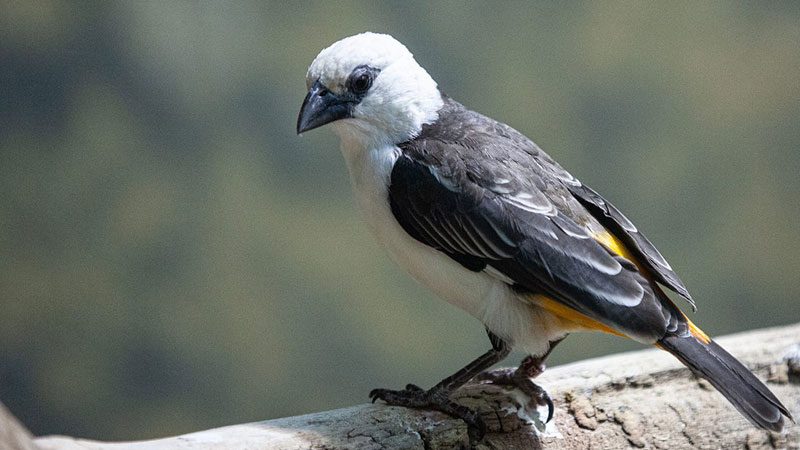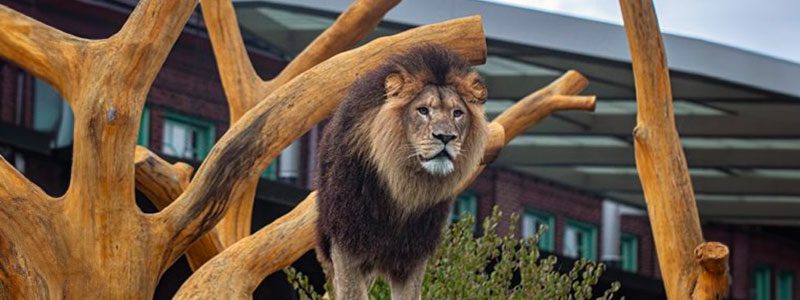Welcome to Lincoln Park Zoo’s new web app! Share your feedback

White-headed Buffalo Weaver
McCormick Bird House
Did You Know?
- White-headed buffalo weavers were named in part for their elaborate nests, which often have multiple compartments and tunnels. They weave these into a structure using thorny branches and twigs. The nests are so well-made that other birds sometimes use their vacant homes rather than building their own.
- Their courtship behaviors include extending their wings to reveal white underneath and making vocalizations.
- These birds are on the unofficial “Little Five” list, a collection of small animals that tourists may wish to spot while on safari. The other four are elephant shrews, leopard tortoises, antlions, and rhinoceros beetles. They are counterparts of the Big Five: elephants, rhinos, leopards, lions, and cape buffalo.
Don’t See the Animals?
Why aren’t animals visible at all times? To promote positive animal welfare, we provide animals with choices. They can choose to spend time in areas that are out of public view.

Take an Animal Home with You
Overview
Scientific Name: Dinemellia dinemelli
Class: Birds
Diet: Seeds, fruits, and insects
Range: East Africa
Endangered Status: Least Concern
More Information
White-headed buffalo weavers are African perching birds with a white head, chest, and undersides, and black wings and tailfeathers. They have orange on their rump and small patches on their wings. They live in colonies and thrive in several types of ecosystems, including wetlands, savannas, and shrublands.
These birds lay two to four eggs per clutch and incubate for two weeks. Chicks are cared for by both parents and generally stay with them to create small family groups.
